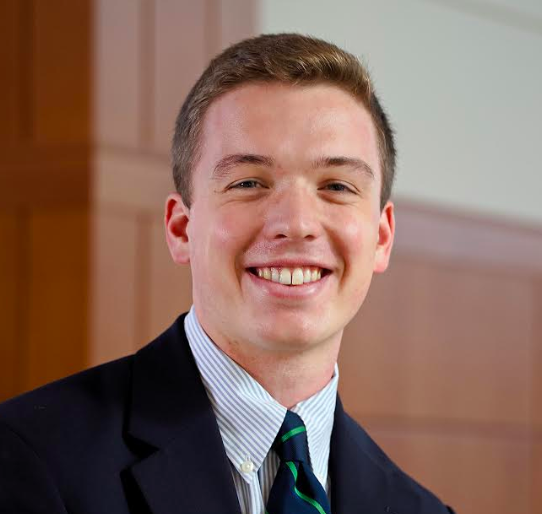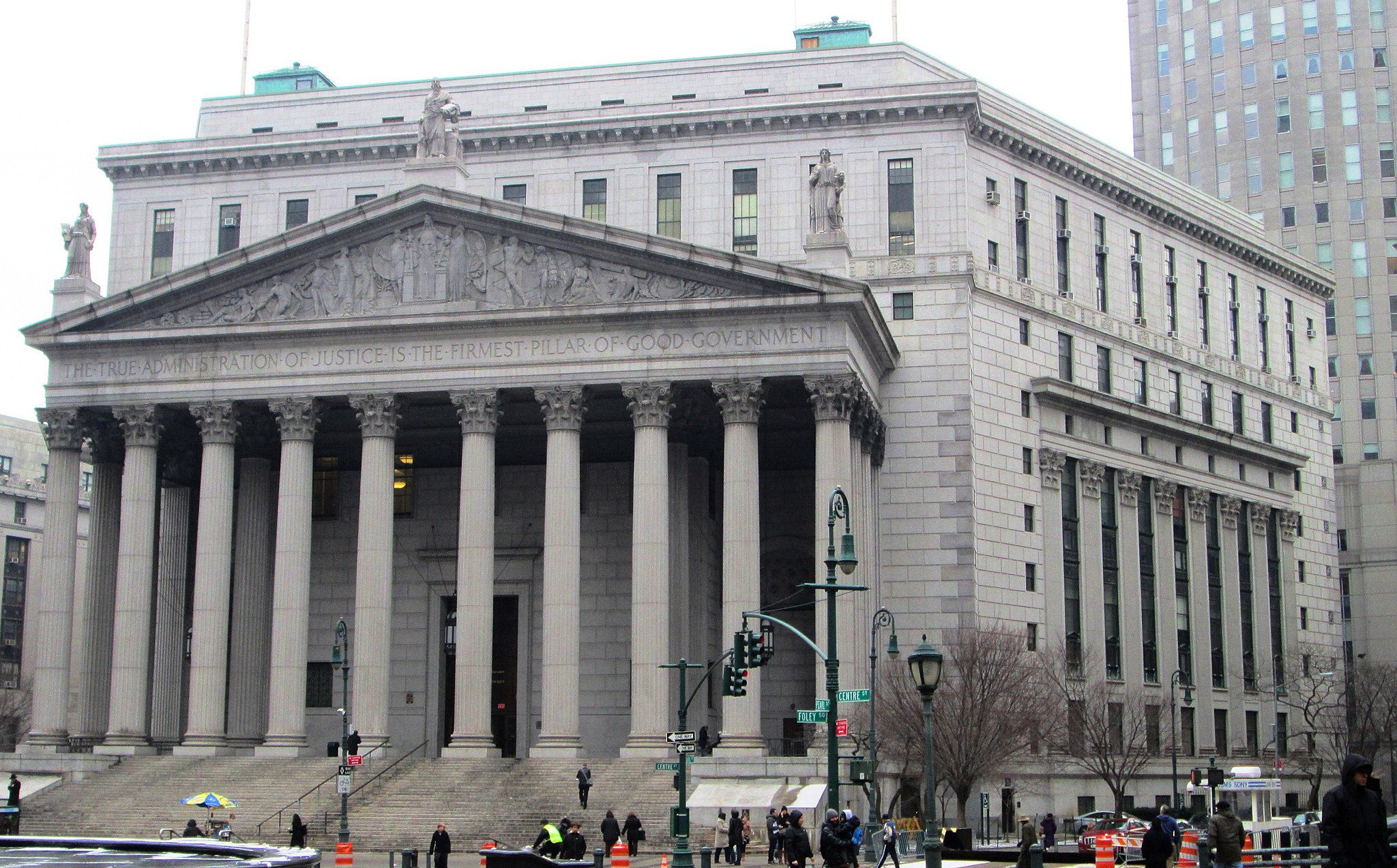Today's Headlines and Commentary
In an Oval Office meeting shortly after the firing former FBI Director James Comey last May, President Trump asked Andrew McCabe, then the acting FBI director, how he voted in the 2016 election, the Washington Post reports. Trump also reportedly expressed concerns to McCabe about the acting director’s politics.
Published by The Lawfare Institute
in Cooperation With

In an Oval Office meeting shortly after the firing former FBI Director James Comey last May, President Trump asked Andrew McCabe, then the acting FBI director, how he voted in the 2016 election, the Washington Post reports. Trump also reportedly expressed concerns to McCabe about the acting director’s politics. Since around the time he took the reins of the bureau, McCabe has been a recurring target of the president’s anger, stemming in part from McCabe’s commitment to protecting the independence of the special counsel investigation into possible connections between the Trump campaign and the Russians and obstruction of justice.
FBI director Christopher Wray has selected a new chief of staff and general counsel for the bureau, the Washington Post reports. The staffing changes—which replace two senior aides to Wray’s predecessor, James Comey—come after a period of concerted political pressure on Wray from both the attorney general and the president, who want Wray to replace the senior civil servants who worked under Comey. Wray selected Dana Boente—the U.S. attorney in the Eastern District of Virginia and head of the national security division at the Justice Department—as the FBI’s new general counsel and Zachary Harmon—a former colleague of Wray’s from King & Spalding, a law firm—to replace Wray’s current chief of staff, Jim Rybicki.
Members of Special Counsel Robert Mueller’s team have interviewed CIA director Mike Pompeo, NBC News reports. Pompeo joins the list of other senior Trump administration officials who have met with Justice Department investigators. On Tuesday, the New York Times reported that the special counsel’s team had interviewed James Comey and Attorney General Jeff Sessions.
In the coming weeks, the special counsel seeks to question the president about Trump’s decisions to fire James Comey and request the resignation of Michael Flynn, the Washington Post reports. The investigation’s scrutiny of these decisions suggests that it seeks to examine all possible attempts to interfere with the investigation into possible Russian collusion with elements of the Trump campaign. The president’s lawyers have drafted negotiating terms for the president’s interview with the special counsel, which could receive these terms as early as next week.
Speaking at the American Enterprise Institute on Tuesday, CIA director Mike Pompeo stated that the agency now has a better understanding of North Korea’s programs to build nuclear missiles that can hit specific targets within the U.S., though Pompeo qualified that gaps in this understanding remain, the Washington Post reports. Pompeo praised his agency’s efforts to gather intelligence about North Korea’s nuclear programs and lamented what he characterized as insufficient attention to Pyongyang under previous administrations. The director chose his words judiciously, however, and never explicitly assigned blame for the gaps in CIA knowledge of North Korean programs that persist. During his speech, Pompeo also reiterated that Pyongyang is but a few months away from being able to develop reliable intercontinental ballistic missiles. He added that North Korean leader Kim Jong Un is unlikely to stop at the production of a single missile. Rather, Kim is more likely to develop a nuclear arsenal.
Turkish President Recep Tayyip Erdogan pledged to widen Turkey’s offensive against Kurdish militias in northern Syria from Afrin to Manbij, the Washington Post reports. The decision will bring Turkish forces and their Syrian allies closer to U.S. troops in Syria, who are there to support the Kurds in the fight against the Islamic State. Senior U.S. officials such as Defense Secretary James Mattis worry that the Turkish offensive will wreak havoc in one of the few stable areas left in Syria, the north, and distract from ongoing operations aimed at destroying ISIS.
Secretary of State Rex Tillerson declared on Tuesday that he holds Russia accountable for an alleged chemical weapons attack carried out by Syrian government forces in Damascus on Monday, the Wall Street Journal reports. Tillerson continued, stating that Russia’s failure to prevent this chemical strike “calls into question Russia’s ability to participate in efforts to resolve the Syrian crisis.” According to the secretary, more than 20 civilians—including many children—became sick after the alleged chlorine-gas attack. The tragedy is only the latest incident in which Bashar al-Assad’s military has used chemical weapons on its own people. The attack came on the eve of planned U.N.-backed Syrian peace negotiations.
ICYMI: Yesterday on Lawfare
Quinta Jurecic posted Judge Tanya Chutkan’s most recent ruling in Doe v. Mattis.
Jurecic and Benjamin Wittes investigated whether Rep. Devin Nunes’s Republican colleagues on the House intelligence committee will defend the veracity of his memo on alleged government abuses—they suspect that not many will.
Vanessa Sauter posted the newest Lawfare Podcast, in which Shannon Togawa Mercer speaks to homeland security and nuclear weapons experts about Hawaii’s early-warning faux pas.
In anticipation of Judge Chutkan’s ruling, Robert Chesney discussed whether the transfer of John Doe in Doe v. Mattis might be prohibited by the Supreme Court’s decision in Valentine v. United States or permitted by the court’s decision in Munaf v. Green.
Dana Stuster posted this week’s Middle East Ticker, in which he discussed Turkey’s invasion of northern Syria to fight U.S.-backed Kurdish militias, international reactions to Vice President Mike Pence’s visit to Israel, and Egypt’s upcoming presidential elections in March.
Stewart Baker posted this week’s Cyberlaw Podcast.
Charles Kurzman argued that, before the administration can blame terrorism on immigrants, the public needs more comprehensive data about terrorism prosecutions so that researchers can create a more accurate portrait of violent extremism in the United States.
Email the Roundup Team noteworthy law and security-related articles to include, and follow us on Twitter and Facebook for additional commentary on these issues. Sign up to receive Lawfare in your inbox. Visit our Events Calendar to learn about upcoming national security events, and check out relevant job openings on our Job Board.


.jpg?sfvrsn=31a7c788_5)


